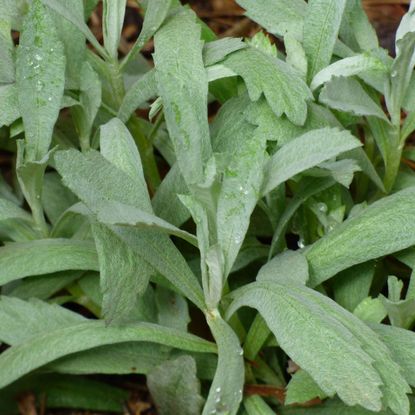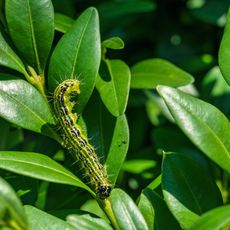Deterring Bees With Plants: Learn How To Repel Bees And Wasps


Bees and flowers are a combo linked by nature and there is very little you can do to separate the two of them. Flowering plants rely on bees to do the necessary pollen transfer to help them reproduce. That being said, some people are very allergic to these insects and having them zooming in and out of their yards poses a major threat to them. For this reason, it is sometimes necessary to look for alternative solutions in keeping them away-- such as with plants. It's safer for the homeowner and doesn't harm the bees or wasps. They simply go elsewhere to do their thing. If you are thinking about deterring bees with plants and flowers bees don’t like, read on.
Are There Flowers Bees Don’t Like?
If you are searching for flowering plants that repel bees, or flowers bees don’t like, you may be disappointed. There aren’t too many. In fact, most flowers go to great lengths to make themselves attractive to passing bees. Bees are essential for pollination. Without pollination, flowers don’t produce the seeds that will grow into next year’s plants. Flowers need bees to survive. That’s why you’re unlikely to find many, if any, flowering plants that repel bees. Gardeners need bees too. It is said that bees are responsible for every third bite you eat. Almost all crops grown for their fruits – and this includes veggies like tomato, cucumber, and eggplant – require pollination by insects. So do plants grown for nuts, seeds, and fiber. Bees are far and away the most important insect pollinators. Most of a bee’s life is dedicated to collecting pollen from flowers to feed to their offspring, which puts them in the right place to pollinate. Flowering plants that repel bees are rare or nonexistent. Many types of flowers actually produce sugary nectar or use other tricks just to attract bees.
Plants that Deter Bees and Wasps
If you’re wondering how to repel bees and wasps naturally, you are not alone. Many gardeners would rather see less of the buzzing insects and the stings of some wasps, like yellow jackets, which can be dangerous. Stings from any bee can be especially dangerous to those who are highly allergic to them. Unfortunately, you won’t find very many plants that deter bees and wasps – wormwood (Artemisia) is one of only a few plants reputed to discourage wasps. Other possibilities include mint, eucalyptus, and citronella. Since there aren't many solutions to rid the area completely of bees, your only option may be to incorporate non-flowering plants into the landscape, like evergreen shrubs and various foliage plants. Those having insignificant blooms may be useful too. Also, place anything that does flower further away from the home or yard in which you're likely to frequent most often. Although there is no easy way to deter bees and wasps naturally, you can use plants to deter other annoying and destructive insects. For instance:
- Plant garlic and chives to get rid of aphids.
- Grow basil for the control of flies and mosquitoes.
- Mint is good for deterring ants.
- Pennyroyal helps get rid of fleas.
- Petunias in the garden can help control leafhoppers.
Gardening tips, videos, info and more delivered right to your inbox!
Sign up for the Gardening Know How newsletter today and receive a free download of our most popular eBook "How to Grow Delicious Tomatoes."

Teo Spengler has been gardening for 30 years. She is a docent at the San Francisco Botanical Garden. Her passion is trees, 250 of which she has planted on her land in France.
-
 Urban Composting Guide: How To Compost In The Middle Of The City
Urban Composting Guide: How To Compost In The Middle Of The CityUrban composting does not have to be daunting. You can compost in the city, and maybe even try some urban worm composting!
By Mary Ellen Ellis
-
 Shrub Diseases And Pests To Watch Out For
Shrub Diseases And Pests To Watch Out ForShrub diseases and pests can be challenging. Learn how to recognize and eradicate them before they can present a danger to your plants.
By Susan Albert